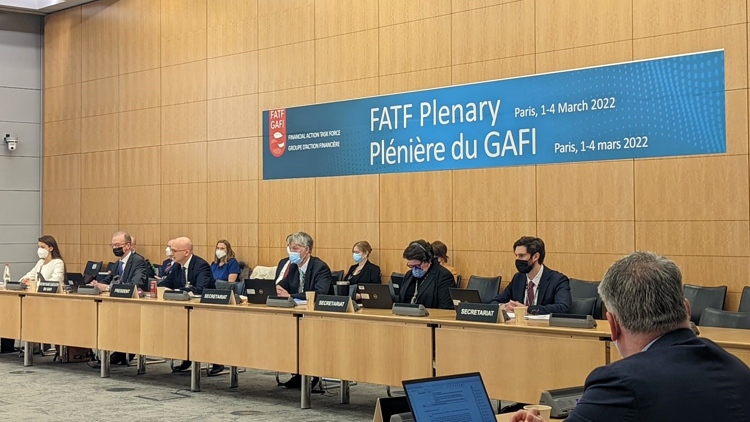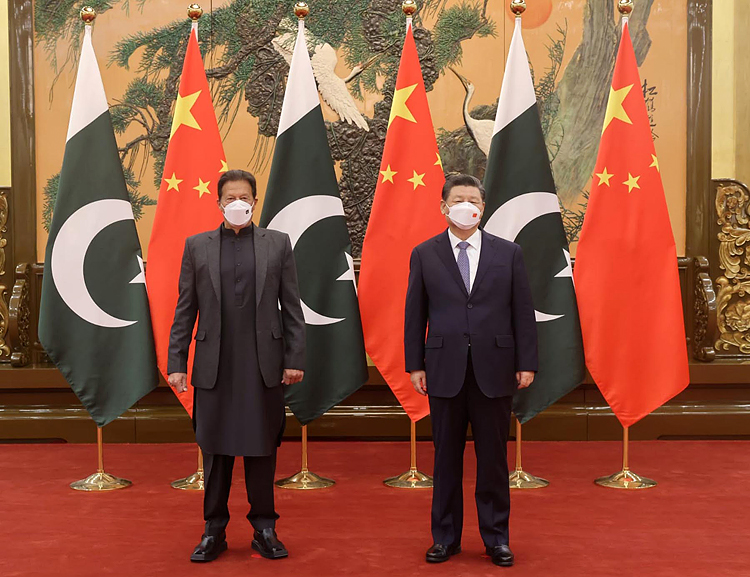INDIAN ARMED FORCES CHIEFS ON OUR RELENTLESS AND FOCUSED PUBLISHING EFFORTS

The insightful articles, inspiring narrations and analytical perspectives presented by the Editorial Team, establish an alluring connect with the reader. My compliments and best wishes to SP Guide Publications.

"Over the past 60 years, the growth of SP Guide Publications has mirrored the rising stature of Indian Navy. Its well-researched and informative magazines on Defence and Aerospace sector have served to shape an educated opinion of our military personnel, policy makers and the public alike. I wish SP's Publication team continued success, fair winds and following seas in all future endeavour!"

Since, its inception in 1964, SP Guide Publications has consistently demonstrated commitment to high-quality journalism in the aerospace and defence sectors, earning a well-deserved reputation as Asia's largest media house in this domain. I wish SP Guide Publications continued success in its pursuit of excellence.
- Operation Sindoor: Resolute yet Restrained
- India’s Operation Sindoor Sends a Clear Message to Terror and the World – ‘ZERO TOLERANCE’
- Japan and India set forth a defence cooperation consultancy framework, talks on tank and jet engines
- Terrorist Attack in Pahalgam in Kashmir: Unfolding a long surgical war against PAK
- Lt General Pratik Sharma takes over Command of Indian Army's Northern Command
Darker Clouds Over Pakistan
The resurgence of IS-K in Pakistan is bad news for Pakistan while the Tehreek-e-Taliban Pakistan (TTP), Baloch Liberation Army (BLA) and other outfits are targeting the Pakistani security establishment and their supporters
 |
The Author is Former Director General of Information Systems and A Special Forces Veteran, Indian Army |

Despite best efforts, Pakistan has been retained on the ‘grey list’ of the Financial Action Task Force (FATF). The decision was made after conclusion of the four-day FATF Plenary from March 1 to 4 this year. The FATF Plenary took place under the German Presidency of Dr Marcus Pleyer which saw the participation of over 200 members from the Global Network and observer organisations, including the International Monetary Fund, the United Nations and the Egmont Group of Financial Intelligence Units.
Pakistan has been on the FATF's grey list for deficiencies in its counter-terror financing and anti-money laundering regimes since June 2018, adversely impacting its imports, exports, remittances, and limited access to international lending. The FATF statement read, "Since June 2021, Pakistan has taken swift steps towards improving its AML/CFT regime and completed 6 of the 7 action items ahead of any relevant deadlines expiring, including by demonstrating that it is enhancing the impact of sanctions by nominating individuals and entities for UN designation and restraining and confiscating proceeds of crime in line with Pakistan's risk profile."
Concurrent to the FATF retaining Pakistan on the ‘grey list’, the US Federal Reserve Board came out heavily against the National Bank of Pakistan for anti-money laundering violations
The statement further said, "Pakistan should continue to work to address the one remaining item in its 2021 action plan by demonstrating a positive and sustained trend of pursuing complex ML (money laundering) investigations and prosecutions." But this is the most difficult part for Pakistan because the Pakistani establishment is hand in glove with multiple terrorist organisations, which they continue to protect through fake fronts, sidetracking blame, and an odd sentence only to be exonerated by higher courts.
Concurrent to the FATF retaining Pakistan on the ‘grey list’, the US Federal Reserve Board came out heavily against the National Bank of Pakistan for anti-money laundering violations. The Pakistani bank which operates in the US as a foreign bank has been slapped with a penalty of $ 20.4 million on February 24, 2022. In 2020, six Pakistani banks were found to be involved in money laundering in 29 suspicious transactions of close to $ 2.5 million. In February 2020, the UAE central bank launched an investigation into Pakistan's largest bank, Habib Bank Ltd, for violation of anti-money laundering and terrorism-financing laws. Such gross violations prove that Pakistan has never been serious about reining terror financing.
On March 4, 2022, a suicide bomber attacked the Koocha Risaldar Mosque in Peshawar, Pakistan, killing at least 63 inside the Shia mosque and wounding scores of others. A spokesman from Peshawar’s Lady Reading Hospital said that more than 190 people were wounded in the attack while Friday prayers were being held and several are in critical condition. A witness Zaid Khan told a media reporter, "I saw a man firing at two policemen before he entered the mosque. Seconds later I heard a big bang."
The Islamic State Khorasan (IS-K) claimed responsibility for the March 4 terror attack on the Koocha Risaldar Mosque in Peshawar, Pakistan saying an Afghan suicide bomber carried out the attack
Thousands of people have been killed, most of them Shias, in Pakistan's sectarian violence in recent years. According to the US State Department's ‘International Report on Religious Freedom (issued in 2021), other terrorist groups, including Lashkar-e-Jhangvi (LeJ), Tehreek-e-Taliban Pakistan (TTP), and the Sipah-e-Sahaba, Pakistan staged attacks on Shia Muslims, including the predominantly Shia Hazara community in Pakistan.
The Islamic State Khorasan (IS-K) claimed responsibility for the March 4 terror attack on the Shia mosque saying an Afghan suicide bomber carried out the attack. UN Secretary-General Antonio Guterres condemned the attack and tweeted that "houses of worship should be havens, not targets". In October 2021, the IS-K bombed the Bibi Fatima Mosque and the Gozar-e-Sayed Abad Mosque in Kunduz, Afghanistan, killing about 50 people in each of the attacks a week apart.

The resurgence of IS-K in Pakistan is bad news for Pakistan while the Tehreek-e-Taliban Pakistan (TTP), Baloch Liberation Army (BLA) and other outfits are targeting the Pakistani security establishment and their supporters. The chickens are coming home to roost in both these cases. The TTP was raised by Pakistan’s ISI. Similarly, the IS-K was raised in Peshawar using disgruntled cadres of the Afghan Taliban and the TTP plus adding elements of ISI and other Pakistani terrorist organisations. This brigade-sized outfit was then pushed west into Nangarhar province of Afghanistan. They were called “ISI Brigade” by the Afghan National Army before the Taliban takeover.
Pakistan wanted the Taliban to pressure the Afghanistan-based TTP not to attack Pakistan, which is wishful thinking. Now the Taliban have resolved to prevent Afghans from taking revenge on each other after 43 years of war. This promise was made by Abdul-Salam Hanafi, Taliban's Second Deputy Prime Minister, at a meeting with Michelle Bachelet, UN High Commissioner for Human Rights, and Deborah Lyons, head of UNAMA on March 11, 2022. Incidentally, the Taliban had accused Bachelet two days earlier for supporting IS-K by disclosing that 397 civilians were killed by the Taliban.
Bachelet urged the Taliban to ensure the rights of ethnic groups, minorities, women and children, saying this is in their own interests to strengthen and stabilise their power. However, the Taliban remain unchanged. However, over 100 former members of Afghan security forces were killed by the Taliban in the first two months of Taliban rule according to Human Rights Watch. The Taliban are not committed to human rights, want Sharia rule and feel violated by the US for having illegally appropriated Afghan assets.
Pakistan is also facing shortage of electricity. Gwadar district in Pakistan faced an acute shortage of electricity after Iran suspended the electricity supply to Pakistan.
Pakistan is also facing shortage of electricity. As per news reports of March 12, 2022, Gwadar district in Pakistan faced an acute shortage of electricity after Iran suspended the electricity supply to Pakistan. Whether this was because of the March 4 bombing of the Shia mosque in Peshawar killing at least 63 and wounding over 190 is not known. According to reports, the electricity demand of Makran Division, including Gwadar is 150MW and currently, the only source of supply of around 104MW is coming from Iran.
Concurrently, China’s state-owned China Electric Power Equipment and Technology Co Ltd (CET), registered in Pakistan as Pak Matiari-Lahore Transmission Company Private Limited (PMLTC), has expressed concern over its dues and asked the Pakistan Ministry of Energy (power division) to release Pakistani Rupees (PKR) 12.35 billion as Transmission Service Payment. According to Dawn, the companies (CET and PMLTC) have asked the ministry to prioritise the payment of dues.
Interestingly, Pakistan seeks $21 billion from China, as reported in media on March 9, 2022, some details of which were discussed during Prime Minister Imran Khan's visit to China in February this year. China and Saudi Arabia had already granted huge loans to Pakistan in the past few years. In December 2021, Saudi Arabia granted a loan of $3 billion to Pakistan. The clouds over Pakistan are surely getting darker.





